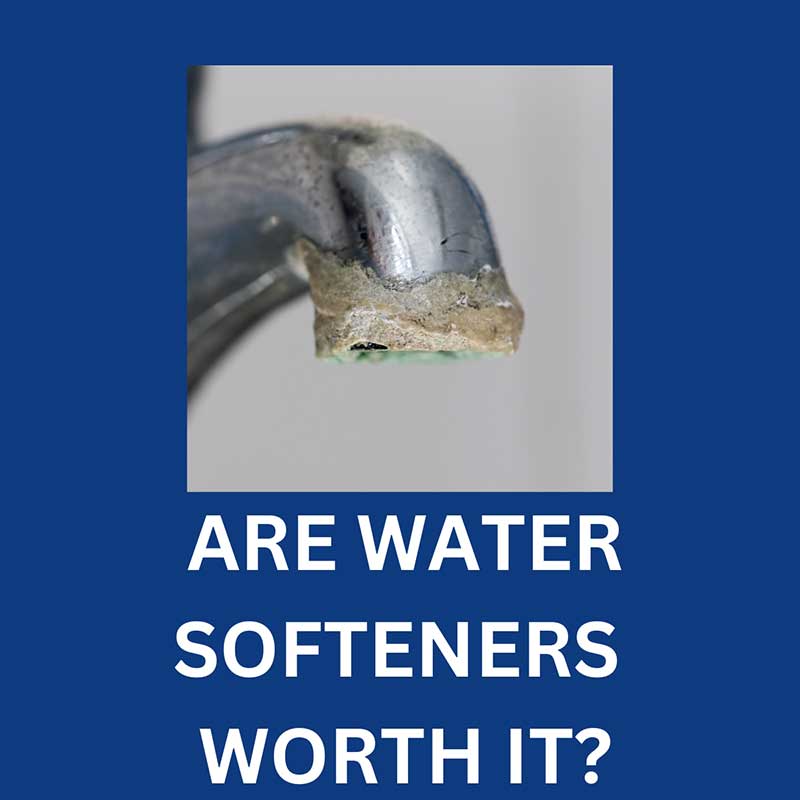
Essex is a very hard water area we sometimes get asked by customers whether they should buy a water softener.
Water softeners come with advantages and disadvantages it’s up to you to weigh these up and decide if a water softener’s for you.
The Advantages Of Water Softeners
A water softener will greatly reduce the limescale build up in your kettle, shower head, tiles, shower enclosures, bath etc
Essex residents know what limescale does and what it’s like to clean the above items. A water softner greatly reduces limescale saving you time cleaning and money in cleaning products. Your kettles and showerheads will last longer also.
Limescale build-up is a common cause of appliance failure. A buildup in pipes can stop appliances working in extreme cases limescale can break appliances. Soft water’s better for your boiler, washing machine, and dishwasher, which will save you money on repairs and replacements.
Appliances free from limescale build-up are more energy-efficient and will last longer.
Soft water is friendlier on the skin and hair great news for those with sensitive skin. A water softener ensures smoother skin and softer hair. Soap and detergents work better with soft water and will go further saving you money.
Soft water’s better for plates, cutlery and glasses. Your plates and cutlery will come out better in the dishwasher you won’t get that annoying and unsightly white haze on your glasses.
Your laundry will clean up better and feel softer.
Disadvantages Of Water Softeners
Water softeners require rock salt to operate and will cost the average household between 40 to £80 a year.
Hard water naturally contains magnesium and calcium essential for maintaining a healthy body, good for your teeth, bones and heart.
Softened water doesn’t taste that great and can pick up heavy metals from pipes, bad for humans. It’s for this reason that most people keep a separate tap for drinking water and cooking.
During the softening process, some water’s wasted around 10% this could be detrimental to your water bill if you’re on a water meter. Water companies want the public to reduce their daily water consumption so frown upon water softeners.
Water softeners are not free of course, they generally cost around a few hundred pounds and then you have to pay to have it installed, which may involve extra plumbing. A water softener will need servicing by an engineer every two to three years also.
The water softener will take up some cupboard space which may be undesirable if you live in a small property.

Hi, I’m Terry, the founder and owner of TM Hughes & Son Gas Services
Please get in touch to book an appointment or receive a free, no-obligation quote
Call – 01245 830075
Email – info@tmhughesandson.uk
